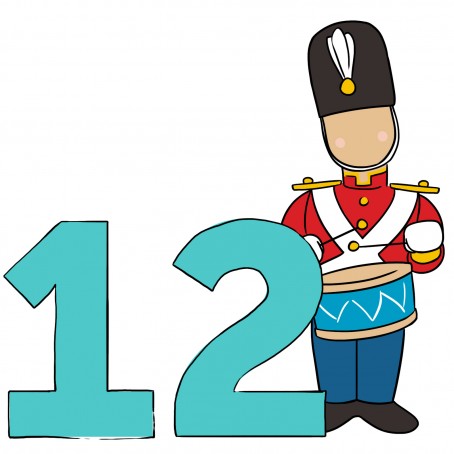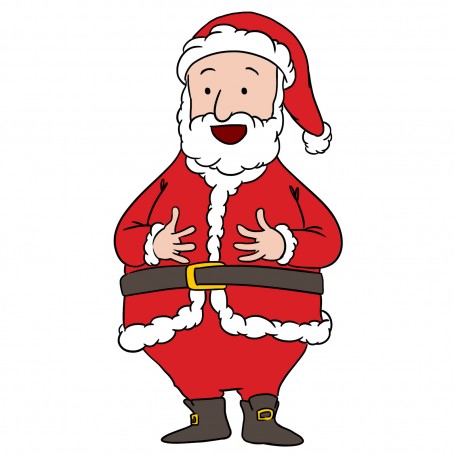Do you know any ways to wish someone a ‘Merry Christmas’ in Polish? PolishPod101 brings you easy-to-learn translations and the correct pronunciation of Polish Christmas phrases!
Christmas is the annual commemorative festival of Christ’s birth in the Western Christian Church. It takes place on December 25th and is usually celebrated with much food and fanfare! However, not all cultures celebrate Christmas. In some countries, Christmas is not even a public holiday! However, many countries have adapted Christmas and its religious meaning to tally with their own beliefs, or simply in acknowledgment of the festival’s importance to other cultures. If you want to impress native Polish speakers with culturally-appropriate Christmas phrases and vocabulary, PolishPod101 will teach you the most important ways to wish someone a ‘Merry Christmas’ in Polish!

Table of Contents
- How to Celebrate Christmas in Poland
- Holiday Greetings and Wishes
- Must-Know Christmas Day Vocabulary
- Twelve Days of Christmas
- Top 10 Christmas Characters
- How PolishPod101 Can Help You
1. How to Celebrate Christmas in Poland
Let’s talk about the greatest and most important holiday in Poland: Christmas Eve. For this occasion, Poles typically return to their parents’ homes, and have a sit-down dinner with their families, gorging on various dishes prepared specially for this occasion. People also frequently decorate Christmas trees, called choinka, and exchange presents.
Now, before we get into more detail, do you know the answer to this question-
In some regions of Poland people receive presents from someone other than Santa Claus. Who is it?
If you don’t know already, you’ll find out a bit later. Keep reading.
Christmas Eve has always been a special day in Poland when extraordinary things are known happen. In the past many superstitions existed, for example some believed that on this day the spirits of the dead, or dusze zmarłych, would visit their families, that the water in local wells might turn into honey or wine, and that animals would speak with human voices. It was also recommended to have a bath in the river on the morning of Christmas Eve to ensure one’s health and vitality for the following year.
Today, Christmas Eve is still a special and magical day in a way, and is celebrated by most people, not just those who are religious. There are many traditions that have survived to this day, and one of the most important is to prepare at least twelve different dishes for Christmas Eve dinner. Fish, or ryba, is the most common, prepared in various forms, such as baked, stewed, and jellied, and other common dishes including groats and cereals, salads and nuts. If you spend Christmas in Poland, other than fish dishes you must try borscht or barszcz and dumplings with cabbage and mushrooms called pierogi z kapustą i grzybami. Another famous dish is poppy seeds with honey and boiled grain, called kutia, or if you use bread instead of grains, makówka. And let’s not forget about other sweets like gingerbread or poppy-seed cake.
Another tradition is to share the Christmas wafer, or opłatek, before dinner. Each guest gets a piece of this beautifully decorated wafer and submits wishes to the other guests, one by one, breaking the wafer piece by piece. It is a very beautiful tradition because people don’t wish anything for themselves, but only for others.
Listeners who are familiar with Christmas will most likely know the story of the birth of Jesus in Bethlehem and the Three Wise Men, who followed a star to arrive at Jesus’s manger. Based on the events of this story, if the sky is clear on the evening of Christmas Eve, in many Polish homes people will sit down to dinner only after the first star appears in the night sky.
Now it’s time to answer our quiz question-
In some regions of Poland, people receive presents from someone other than Santa Claus. Who is it?
In several regions of Poland, like Kaszuby, Kujawy and Greater Poland, the one who brings gifts for well-behaved children is Father Christmas, called Gwiazdor. But if someone was naughty, both of them—Santa Claus and Father Christmas—leave a wooden stick under the Christmas tree instead of a gift.
2. Holiday Greetings and Wishes for the Holiday Season
1- Merry Christmas!
Wesołych Świąt!
Do you know how to say ‘Merry Christmas’ in Polish? Learn here how to pronounce it perfectly! ‘Merry’ means to be joyful, to celebrate and generally be in good spirits. So, with this phrase you are wishing someone a joyful, celebratory remembrance of Christ’s birth!
2- Happy Kwanzaa!
Szczęśliwego Kwanzaa!
Surprise your African-American, or West African native friends with this phrase over the Christmas holidays! Kwanzaa is a seven-day, non-religious celebration, starting on Dec 26th each year. It has its roots in African American modern history, and many people celebrate both Kwanzaa and Christmas!
3- Have a happy New Year!
Szczęśliwego nowego roku!
In countries where Christmas is not officially celebrated, but a Gregorian calendar is observed, this would be a friendly festive-season wish over New Year.
4- Happy Hanukkah!
Szczęśliwej Chanuki!
Hanukkah is the beautiful Hebrew festival over November or December each year. It is also called the ‘Festival of Lights’ and is celebrated to commemorate the Jewish freedom of religion.
5- Have a great winter vacation!
Udanych ferii!
This is a good phrase to keep handy if someone doesn’t observe any religious festival over the Christmas holidays! However, this will only be applicable in the Northern hemisphere, where it is winter over Christmas.
6- See you next year!
Do zobaczenia w przyszłym roku!
Going away on holiday over Christmas season, or saying goodbye to someone about to leave on vacation? This would be a good way to say goodbye to your friends and family.
7- Warm wishes!
Gorące życzenia!
An informal, friendly phrase to write in Polish Christmas cards, especially for secular friends who prefer to observe Christmas celebrations without the religious symbolism. It conveys the warmth of friendship and friendly wishes associated with this time of year.
8- Happy holidays!
Wesołych świąt!
If you forget how to say ‘Merry Christmas!’ in Polish, this is a safe, generic phrase to use instead.
9- Enjoy the holidays!
Cieszyć się wakacjami!
After saying ‘Merry Christmas’ in Polish, this would be a good phrase with which to wish Christmas holiday-goers well! It is also good to use for secular friends who don’t celebrate Christmas but take a holiday at this time of the year.
10- Best wishes for the New Year!
Wszystkiego najlepszego w nowym roku!
This is another way of wishing someone well in the New Year if they observe a Gregorian calendar. New Year’s day would then fall on January 1st.
3. Must-Know Christmas Day Vocabulary
Christmas is associated with many traditions and religious symbols in multiple countries across the world. It originated centuries ago in the West with the birth of Christianity, and the celebrations are often embedded with rich cultural significance. So, by now you know how to say Merry Christmas in Polish! Next, learn pertinent vocabulary and phrases pertaining to Christmas, as well as how to pronounce them correctly. At PolishPod101, we make sure you sound like a native speaker!
1- Christmas
Boże Narodzenie
This is the Polish word for ‘Christmas’. Most happy Christmas wishes in Polish will include this word!
2- Snow
śnieg
In most Northern-hemisphere countries, Christmas is synonymous with snow, and for Christmas, the snowman is often dressed as Santa Claus.
3- Snowflake
płatek śniegu
Snowflakes collectively make up snow. A single snowflake is small, white, light like a feather and icy cold! When put under a microscope, the snowflake reveals itself to have the most beautiful, symmetrical patterns. These patterns have become popular Christmas decorations, especially in Western countries.
4- Snowman
bałwan
As you guessed – a snowman is only possible to build if it is snowing! What a fun way to spend Christmas day outside.
5- Turkey
indyk
Roast turkey is the traditional main dish on thousands of lunch tables on Christmas day, mainly in Western countries. What is your favorite Christmas dish?
6- Wreath
wieniec świąteczny
Another traditional Western decoration for Christmas, the wreath is an arrangement of flowers, leaves, or stems fastened in a ring. Many families like to hang a Christmas wreath outside on their houses’ front doors.
7- Reindeer
renifer
Reindeer are the animals commonly fabled to pull Santa Claus’ sled across the sky! Western Christmas folklore tells of Father Christmas or Santa Claus doing the rounds with his sled, carrying Christmas presents for children, and dropping them into houses through the chimney. But who is Santa Claus?
8- Santa Claus
Święty Mikołaj
Santa Claus is a legendary and jolly figure originating in the Western Christian culture. He is known by many names, but is traditionally depicted as a rotund man wearing a red costume with a pointy hat, and sporting a long, snow-white beard!
9- Elf
elf
An elf is a supernatural creature of folklore with pointy ears, a dainty, humanoid body and a capricious nature. Elves are said to help Santa Claus distribute presents to children over Christmas!
10- Rudolph the Red-Nosed Reindeer
Rudolf czerwononosy renifer
‘Rudolph the Red-Nosed Reindeer’ is a Christmas song based on an American children’s story book with the same name. Rudolph is one of Santa’s reindeer. The song became more famous than the book, and can still be heard playing in many shopping malls over Christmas time across the globe!
11- North Pole
Biegun Północny
The cold North Pole is where Santa Claus is reputed to live with his reindeer!
12- Sled
sanki
A sled is a non-motorised land vehicle used to travel over snow in countries where it snows a lot, and is usually pulled by animals such as horses, dogs or reindeer. This one obviously refers to Santa’s sled! Another word for sled is sleigh or sledge.
13- Present
prezent
Gift or present giving is synonymous with Christmas Eve and the greatest source of joy for children over this festive time! This tradition signifies that Christ’s birth was a gift to mankind, but not all people who hand out presents over Christmas observe the religious meaning.
14- Bell
dzwon
On Christmas Day, or Christmas Eve, many religious celebrants enjoy going to church for a special sermon and Christmas rituals. The start of the sermon is often announced with bells or a bell, if the church has one. For this reason, the sound of ringing bells is often associated with Christmas Day.
15- Chimney
komin
The chimney is the entrance Santa Claus uses to deliver children’s presents on Christmas Day, according to folklore! Wonder how the chubby man and his elves stay clean…?!
16- Fireplace
kominek
In most countries where it snows, Christmas is synonymous with a fire or burning embers in houses’ fireplaces. Families huddle around its warmth while opening Christmas presents. Also, this is where Santa Claus is reputed to pop out after his journey down the chimney!
17- Christmas Day
Boże Narodzenie
This is the official day of commemorative celebration of Christ’s birth, and falls each year on December 25.
18- Decoration
dekarocja
Decorations are the colourful trinkets and posters that make their appearance in shops and homes during the Christmas holiday season in many countries! They give the places a celebratory atmosphere in anticipation of the big Christmas celebration. Typical Christmas decorations include colorful photographs and posters, strings of lights, figurines of Santa Claus and the nativity scene, poinsettia flowers, snowflakes and many more.
19- Stocking
skarpetka
According to legend, Santa Claus places children’s presents in a red stocking hanging over the fireplace. This has also become a popular decoration, signifying Christmas.
20- Holly
ostrokrzew
Holly is a shrub native to the UK, and parts of Europe, Africa and Asia. It is characterised by glossy, spiny-toothed leaves, small, whitish flowers, and red berries. Ironically, its significance for Christmas relates to Christ’s crucifixion and suffering rather than his birth. However, the leaves’ distinctive shape and image have become popular Christmas decorations.
21- Gingerbread house
domek z piernika
According to legend, the gingerbread house synonymous with Christmas is related to Christ’s birth place, Bethlehem. Bethlehem literally means ‘House of Bread’. Over centuries, it has become a popular treat over Christmas time in many non-religious households as well.
22- Candy cane
laska świąteczna
According to folklore, Christmas candy canes made their appearance first in Germany in the 16th century. A choir master gave children the candy canes to suck on in church in order to keep them quiet during the Christmas sermon! Apparently, the candy is shaped like a cane in remembrance of the shepherds who were the first to visit the baby Jesus. Today, like gingerbread houses, they are still a popular sweet over the festive season!
23- Mistletoe
jemioła
Mistletoe is a parasitic plant that grows on certain trees. In the Middle Ages, it was believed that the mistletoe has magical powers, and could protect a household from evil if hung above a door during December. The belief didn’t last but the habit did, and the mistletoe is another popular Christmas decoration!
4. Twelve Days of Christmas
Wow, you’re doing extremely well! You know how to wish someone a Merry Christmas in Polish, and you learned pertinent vocabulary too! The Twelve Days of Christmas is not very well known in modern times, so, you’re on your way to becoming an expert in Christmas traditions and rituals. Well done!
The Twelve Days of Christmas, also known as Twelvetide, is a traditional festive period of 12 days dedicated to celebrate the nativity of Christ. Christmas Day is, for many who observe Twelvetide, the first day of this period.
‘The Twelve Days of Christmas’ is also a popular Christmas song about a series of gifts given on each day of Twelvetide. According to experts, these gifts were created as a coded reference to important symbols in the Christian church. Here is a list of those gifts mentioned in the song! Do you recognise them?
5. Top 10 Christmas Characters in American Culture
This is fantastic, you know how to explain almost everything about Christmas in Polish! However, do you know the most popular Christmas characters in American culture? Your knowledge will not be complete without this list.
6. PolishPod101 Is One Of The Best Online Language Schools Available!
We don’t just say this – we can prove it! Geared to your personal needs and goals, we have several learning paths from which to choose. From Polish for Absolute Beginners to Advanced Polish, lessons are designed to meet you where you are, and increase your language abilities in fun, easy and interactive lessons! Mastering a new language has never been this easy or enjoyable.
We have over a decade of experience and research behind us, and it shows! With thousands of audio and video lessons, detailed PDF lessons and notes, as well as friendly, knowledgeable hosts, PolishPod101 is simply unbeatable when it comes to learning correct Polish. Plenty of tools and resources are available when you study with us. New lessons are added every week so material remains fresh and relevant. You also have the option to upgrade and enjoy even more personalised guidance and services. This is a sure way to fast-track your learning!
So, this Christmas, why don’t you give yourself a present and enroll in PolishPod101? Or give an enrollment as a present to a loved one. It will be a gift with benefits for a whole lifetime, not just over Christmas!

















